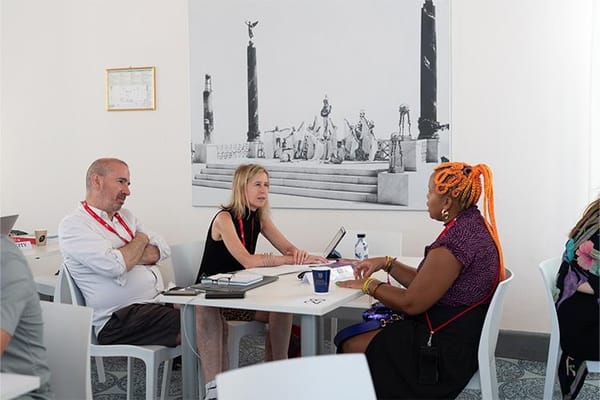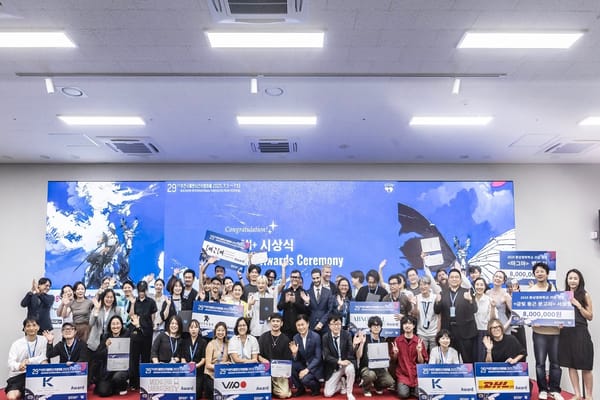Berlin & Rotterdam; India’s JioHotstar; Singapore Cinema Contraction
Politics and business at Berlin and Rotterdam film festivals, India’s new mega streamer and Singapore says goodbye to another cinema.

Not surprisingly, given current events in the US and Europe, politics weighed heavily on this year’s Berlin and Rotterdam film festivals. The films, awards and speeches all reflected the valid concerns of the industry and filmmakers as they attempt to navigate an alarming new world order.
At the same time, muted business at Berlin’s EFM, following a similarly slow Sundance, highlighted further that this is an extremely tough time for the creative industries. Public funding is under pressure everywhere; the number of financiers and buyers continues to contract, as the industry consolidates; and as Ethan Hawke rightly called out in Berlin, the private money still standing is retreating into films and series that are generic, safe and mediocre. More on all these issues below...
Politics Loom Large At Berlin & Rotterdam
Europe suddenly finds itself in a disturbing position – with the US cosying up to Putin and attacking European values; while internally it faces the rise of the far right, a particularly pressing issue for Germany, which is heading to the polls this weekend with the right-wing populist party AfD expected to make gains.
So it was no surprise that the winning films at this year’s International Film Festival Rotterdam (IFFR, Jan 30-Feb 9) touched on issues including nationalism and extremism. Igor Bezinović’s documentary Fiume o Morte!, which won the Tiger Award, examines Italian army officer Gabriele D’Annunzio’s attempts to annex the city of Fiume (now Rijeka in Croatia) to Italy following the First World War. Raptures, which won the Big Screen Award in a separate competition, follows a woman trying to protect her family when her husband launches a religious cult.
IFFR award winners with subject matter set outside Europe included Sammy Baloji’s The Tree Of Authenticity, a visual essay examining the colonial history of the Democratic Republic of the Congo, which won a Special Jury Award, and Vasha Bharath’s Bad Girl, a Tamil-language coming-of-age comedy, which won the Netpac award. Streamlined aims to take a closer look at Indian indie filmmaking later this year – female coming-of-age stories seem to be working with the festival circuit, but it would be refreshing to see other subject matter also being accepted.
Despite its renown as a festival that takes on challenging films, IFFR managed to escape major controversy. Berlin International Film Festival (Feb 13-23) had a harder time striking a balance between being open to free speech, as supported by new festival chief Tricia Tuttle, and being attacked by politicians after a Hong Kong filmmaker read out a pro-Palestine speech on behalf of one of his actors. Calls for defunding the festival came despite the balanced note it struck in its opening days with Tuttle attending a vigil to bring attention to Israeli hostages, including actor David Cunio, still held by Hamas.
Other festival guests were more subtle in their comments but didn’t shy away from making political statements. Tilda Swinton, who was awarded a Golden Bear for lifetime achievement, said “the inhumane is being perpetrated on our watch”, while jury president Todd Haynes said: “we’re in a state of particular crisis right now in the United States, but also globally”, when asked about US President Donald Trump’s first few weeks in office.
Asian festivals are mostly operating outside of these geopolitical nightmares – it’s still too early to say how Trump’s approach to China will impact the region – but some festivals, such as Busan International Film Festival, are based in countries experiencing internal political struggles, with South Korea’s president currently being impeached for declaring martial law late last year. We all need to buckle up because, despite the pressing need to focus on business, this is a year in which politics will be difficult to avoid.
Muted Business At Berlin’s European Film Market
Berlin was praised for having more red carpet fodder this year – Timothee Chalamet in his pink hoodie, Robert Pattinson and Jacob Elordi, among others – promoting either Berlin titles or Oscar contenders. But star power doesn’t always translate into business, and like other recent markets, Berlin’s European Film Market (EFM) resulted in a steady trickle rather than a torrent of deals.
Among the hotter market titles – Lena Dunham’s Good Sex, starring Natalie Portman, sparked a bidding war, yet to be resolved, and Sony Pictures Classics took North American rights to Rebecca Zlotowski’s French-language Vie Privee, starring Jodie Foster (yes, she speaks French). A few other films also found US distributors – Yellow Veil Pictures bought Lucile Hadžihalilović’s The Ice Tower, starring Marion Cotillard; The Forge acquired New Zealand coming-of-age drama We Were Dangerous; and Mubi bought Oliver Hermanus’ gay romance The History Of Sound, starring Josh O'Connor and Paul Mescal.
It was also encouraging to see some Asian and Arab titles generating business...
To read the rest of this article, subscribe to the ‘Streamlined’ newsletter: STREAMLINED




